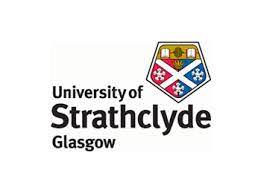University of Strathclyde: Two Strathclyde projects gain New Horizons funding
Two University of Strathclyde projects are to share in a £15 million investment in transformative projects.
Dr Lina Stankovic, in Strathclyde’s Department of Electronic and Electrical Engineering (EEE), is to receive funding to develop technological tools to act as an early warning system for rockfalls and landslides. Professor Massimiliano Vasile, of the Department of Mechanical and Aerospace Engineering, has been awarded a grant to establish a novel pioneering approach for mapping the key fundamental structures governing the evolution of complex dynamical systems.
The projects are among 77 to receive awards from EPSRC (Engineering and Physical Sciences Research Council (EPSRC), part of UK Research and Innovation, through the New Horizons initiative. The investment builds on the more than 100 transformative New Horizons projects funded by EPSRC in 2020.
The project led by Dr Stankovic aims to produce data-driven tools to predict factors which would warn of rockfalls and landslides, which are likely to increase in frequency with wetter winters and higher intensity of rainfall predicted because of climate change. Current monitoring approaches rely on surface observations such as aerial or satellite imaging but this project aims to identify precursory seismic signals that indicate instability and quantify their relationship with other subsurface measurements and influencing factors.
The new tools would combine sensors and machine learning to analyse factors such as precipitation, temperature and the likelihood of seismic activity with the ultimate intention of predicting impending landslides and their scale. Dr Stankovic is working on the project with with her EEE colleague Dr Vladimir Stankovic and Dr Stella Pytharouli of the Department of Civil and Environmental Engineering.
Professor Vasile’s research will develop generative mapping and control of stationary points in complex dynamical systems.
In doing so, this project holds the potential for breakthrough discoveries in both engineering and applied sciences, by understanding and controlling stable and metastable states across a wide range of applications. These vary from condensed matter and granular materials to molecular and climate dynamics, from the evolution of the solar system to the insurgence of chaos in the $4 trillion-worth space environment around Earth.
The New Horizons programme has trialled a streamlined application process to reduce bureaucracy and deliver a faster process compared to current standard funding routes. EPSRC will now conduct further evaluation on the first two rounds of New Horizons and make an announcement on a further round in due course.
EPSRC Executive Chair Professor Dame Lynn Gladden said: “The adventurous thinking displayed in these new projects underlines the ingenuity and imagination of our research base, taking novel approaches to tackle major challenges.
“The discovery-led science we support is at the heart of the research and innovation ecosystem. Engineering and physical sciences underpins and advances research across all disciplines, catalysing the breakthroughs and technologies that deliver benefits and prosperity for all of society.”

